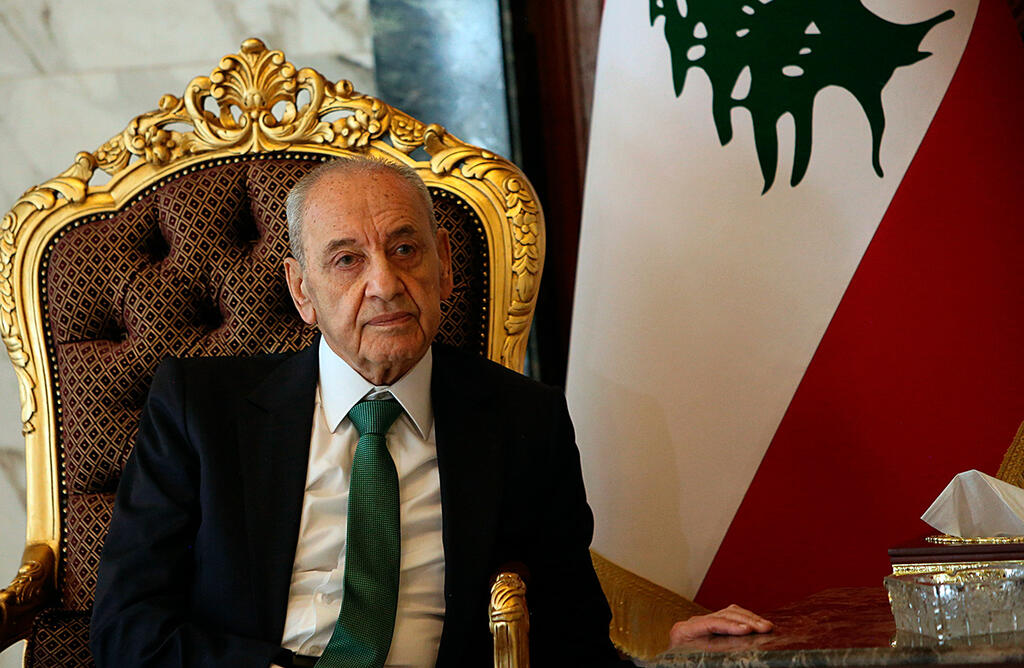Mossad Director David Barnea began talks in Doha on Sunday with CIA Director Bill Burns and Qatari Prime Minister Mohammed Al Thani in an effort to renew negotiations on possible frameworks for a deal to secure the release of 101 hostages held by Hamas.
This marks the first high-level meeting between the parties in two months and the first since the killing of Hamas leader Yahya Sinwar.
3 View gallery


CIA Director Bill Burns, Qatari Prime Minister Mohammed Al Thani and Mossad Director David Barnea
(Photo: Menahem KAHANA / AFP, AFP, AP, Yariv Katz)
The primary goal of this meeting is to advance a new plan that takes into account recent proposals brought forward by the negotiating teams. Officials have indicated that a broader, four-party summit, potentially involving Egypt and Hamas representatives, could take place in the coming days to advance these efforts. Positive developments for Israel in Gaza and Lebanon are seen as creating significant momentum for returning to intensive negotiations.
The Egyptian proposal
Meanwhile, Egyptian President Abdel Fattah el-Sisi publicly presented Cairo’s proposal, which involves a 48-hour cease-fire in exchange for the release of four hostages in return for some Palestinian prisoners. The proposal, aimed at "moving the situation forward," would allow for a 10-day negotiation period to discuss terms for a long-term cease-fire.
According to sources cited by Al Arabiya, Hamas has welcomed Egypt’s proposal but expressed reservations about the lack of Israeli guarantees. Hamas reportedly opposes a cease-fire without a full Israeli withdrawal from northern Gaza and the Netzarim and Philadelphi corridors.
“Our demands are clear and transparent, and an agreement is within reach if [Prime Minister Benjamin] Netanyahu commits to the terms discussed,” Hamas official Hossam Badran told Al Jazeera.
‘We’re negotiating with ourselves’
Israeli officials expressed skepticism about any potential breakthroughs in negotiations with Hamas, citing the upcoming U.S. presidential election on November 5 as a significant factor likely to delay progress. Officials in Jerusalem remain unconvinced of the viability of a proposal from Egypt’s intelligence chief, Hasan Rashad, according to sources familiar with the discussions.
“It’s been like this since January,” said an official close to the talks. “We’re negotiating with ourselves, or at best with intermediaries. At no point has there been a real negotiation with Hamas. They’ve set a demand and haven’t moved an inch from it: a complete end to the fighting and full Israeli withdrawal from Gaza, and that’s not happening.”
This pessimism is rooted in a widespread belief in Israel that Hamas will settle for nothing less than a full withdrawal from Gaza, including from the Philadelphi Corridor and the Rafah crossing. Netanyahu is seen as unlikely to agree to such terms, fearing it could destabilize his coalition due to opposition from ministers like Itamar Ben-Gvir and Bezalel Smotrich.
Still, Mossad Director Barnea has been developing a new negotiation framework over the past three weeks. On Thursday, Barnea met with Rashad in Cairo to update him on the plan, which will likely incorporate elements of both the Egyptian proposal and other options. Barnea remains hopeful that the intimate setting of Doha could restart direct negotiations for a hostage deal.
The discussions in Doha are also expected to touch on the Lebanese front. According to a source quoted by The Wall Street Journal, Barnea does not believe Israel should agree to a cease-fire in Lebanon unless Hezbollah and Iran pressure Hamas to release the hostages in Gaza.
Separately, Lebanese network LBCI cited a diplomatic source who said, "The meeting in Doha has opened a door. There’s been slight progress on Gaza, and there’s genuine interest in a prisoner exchange between Hamas and Israel."
The diplomatic source added that Lebanese Parliament Speaker Nabih Berri had informed Qatar and Egypt that Hezbollah is willing to separate the fronts and accept UN Resolution 1701 as part of a combined package, meaning the Lebanon issue will be included in the ongoing negotiations. A Qatari-Egyptian meeting with Hamas is expected, and a high-ranking Qatari security envoy is set to visit Beirut to address Lebanon’s concerns and demands.
In response, Berri’s office said, “The recent media reports on Speaker Berri’s remarks regarding the negotiations are inaccurate.”
Get the Ynetnews app on your smartphone:




